You know that getting eight hours of sleep a night is good for you. But factor in a working day, a bit of training or riding, cooking and eating, showering and changing, plenty of other daytime chores and responsibilities, and a couple of hours of just being and, well, you do the maths. Struggling to make it add up?
The obvious way to cram more into your day is to snip off bits of the night. Earlier mornings, pushing lights-out later, and bingo, you’re squashing everything in. But this might not be quite the ‘brilliant’ solution you think it is.
Your mind is racing so you’re tossing and turning half the night. Your legs feel like lead. You’re drinking double espressos to get through the afternoon. And that big fat sugary doughnut suddenly looks like the best breakfast on earth. That’ll be the fatigue setting in...
Research shows getting enough sleep is essential for optimum performance – and that sleep deprivation plays with your mind as well as your body.
So here’s why hitting the hay is so important for hitting your training and racing targets, and what you can do to make sure you get enough vitamin Zzz.
The five sleep stages
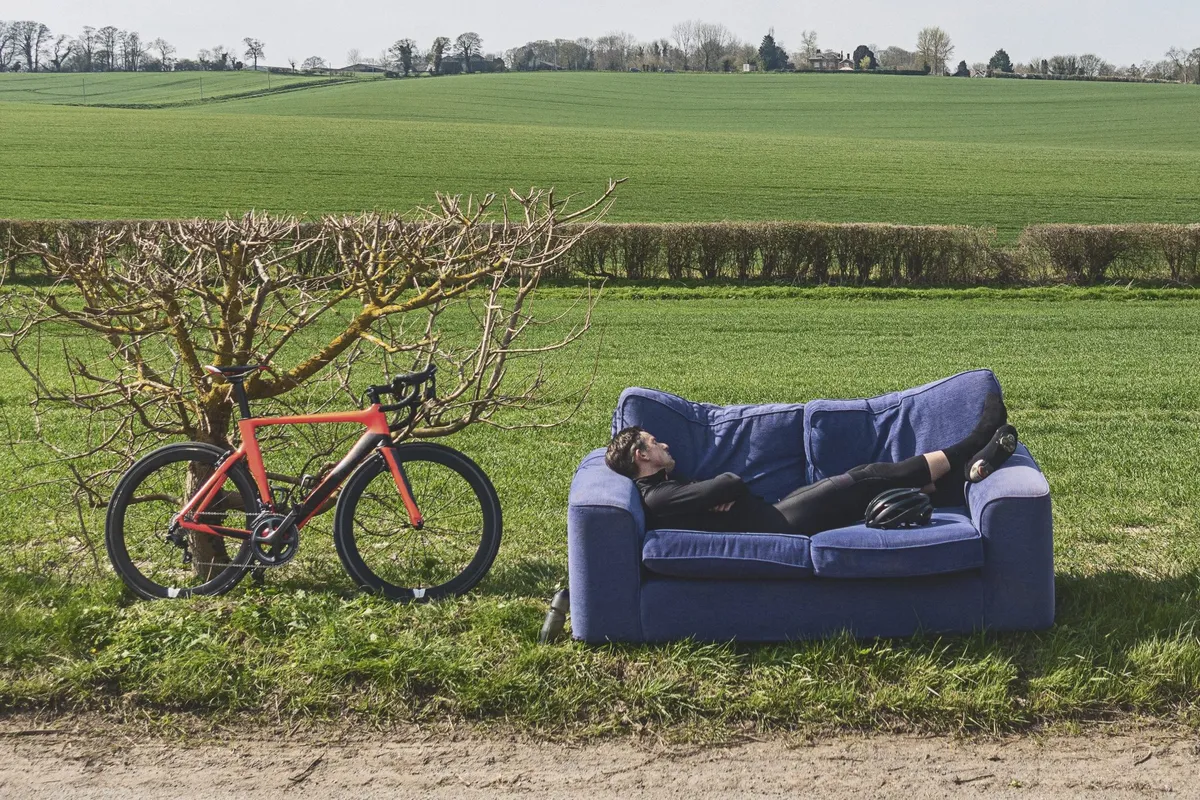
"Regular, good-quality sleep is essential for your body’s physical repair process, but also for your mental health and agility," says Dr Guy Meadows, sleep and sports scientist, and cross-channel swimmer.
Scientists divide sleep into five stages. "The deep sleep of stages three and four is when your body releases human growth hormone (HGH) to repair muscles and bones," says Meadows."
"Stage five is rapid eye movement (REM) sleep. It’s when you dream, when you lay down memories and boost cognitive performance, enhancing skills and techniques you’ve learned during training."
Research from Trent University in Ontario, Canada, showed complex learning tasks such as getting the hang of a new song on Guitar Hero become easier if you sleep well — so the same goes for learning technique.
Does sleep affect physical performance?
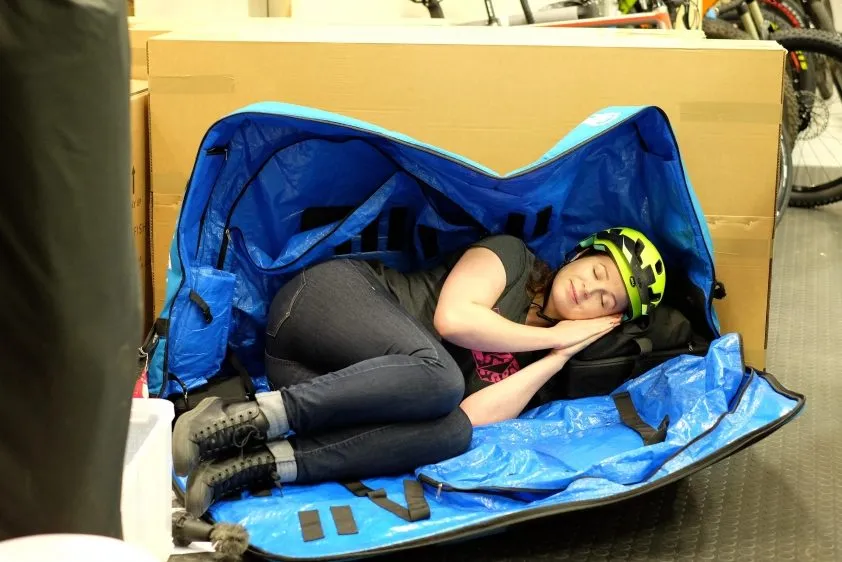
Good sleep, good performance
The boffins who make it their business to find out what boosts athletic performance have revealed that good quantities of sleep increase sprint time, energy levels and shooting accuracy in basketball players, and improve athletic vigour and alertness for footballers.
A study using Stanford University men’s and women’s swimming teams also revealed that athletes who extended their sleep to 10 hours per day for six to seven weeks swam a 15m sprint 0.51 seconds faster, reacted 0.15 seconds quicker off the blocks, improved turn time by 0.10 seconds and increased kick strokes by five kicks, as well as setting personal bests.
Bad sleep? You guessed it...
Just as filling up your Z-tank helps you reach optimum performance levels, skimping on sleep can put unwanted obstacles in the path to your next personal best.
Basic things your body needs to function properly – temperature regulation, energy recovery and heart function – are all affected by sleep, as well as things like concentration and focus.
Studies have shown various detrimental effects of chronic sleep deprivation, from reducing the performance of the heart, to increasing blood pressure, anxiety and depression, and interference with blood sugar metabolism.
"Lack of sleep over several weeks results in persistent fatigue and ultimately overtraining syndrome," says endurance coach and sports scientist Scott Murray
Sleep and metabolism
Many of us have the target of losing weight by riding our bike.
What is particularly interesting in the field of weight-loss research is that, while gaining a calorie deficit from exercise is obviously important, non-exercise activity and nutrition are also paramount in achieving this. In short, there are other things that can contribute to losing fat.
Recent research looking at sleep and weight loss has compared the results of getting 8.5 hours to only 5.5 hours of sleep and the effect this has on fat loss, muscle loss and metabolic markers.
The study reveals:
-
- Fat loss: 1.4 vs 0.6kg with 8.5 vs 5.5 hours of sleep
- Fat-free body mass loss: 1.5 vs 2.4kg with 8.5 vs 5.5 hours of sleep
These results show that the low sleep group lost more muscle mass and less fat. They also saw a neuroendocrine adaptation to caloric restriction (slowing of metabolism), increased hunger and a shift in relative energy use towards less fat.
The research was done with non-exercising individuals and they didn’t monitor protein intake, only calories.
But the information we can take from this is significant as it shows that poor sleep habits in relation to a calorie deficit negatively impacts in a magnitude of ways: less fat loss, more muscle loss, increased hunger and the slowing of metabolism.
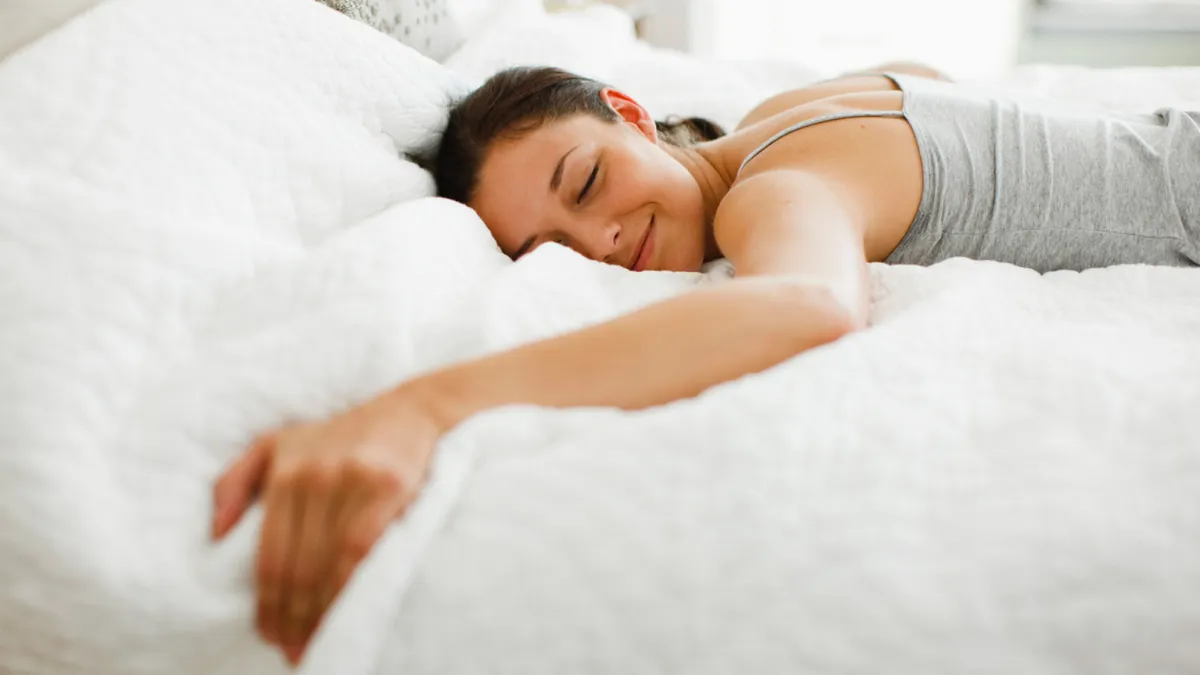
Not sleeping before an event effects performance
What about short-term sleep loss? The pre-race jitters, the teething baby or work stress worries that keep you up all night before a key training session?
"I’ve even seen athletes hydrate so well during the day that they’re up at night peeing." says Murray.
"One night’s disrupted sleep negatively affects motivation and increases anxiety, lapses in concentration and delays in reaction time.
"Two nights of broken sleep has an effect on anxiety and anaerobic performance.
"And while three nights of severely restricted sleep may not affect your gross motor functions (such as muscle strength, lung power and endurance running on a treadmill), it'll reduce your exercise duration and motivation levels.”
Meanwhile, research from the Leiden University Medical Center in The Netherlands also showed that healthy subjects can become insulin-resistant after a shortened night of sleep (four hours in this case).
Insulin resistance is the precursor state to diabetes, affecting your body’s ability to manage sugar, and therefore your energy levels.
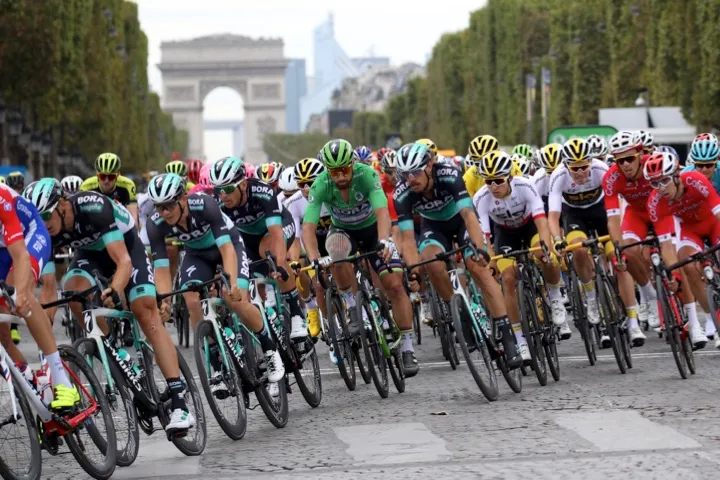
Mind over matter
The good news? “When an event or crucial training session is on the horizon, adrenaline kicks in, and it helps us perform,” says Meadows.
“And the way we view our sleepless night is also key — buying into the idea that we will perform badly starts a downward spiral of doubt that affects performance, whereas chalking it down to experience, and believing in the hours and weeks of previous training helps you to perform.”
In a study showing that one night of sleep deprivation decreased endurance performance only slightly, Dr Sam Oliver, from the School of Sport, Health and Exercise Sciences at Bangor University in Wales, concluded that: “Altered perception of effort may account for decreased endurance performance after a night without sleep.”
Get your mind in gear, and your body will follow.
Don't stress about less sleep
One night of decent sleep helps you recuperate incredibly quickly after a sleepless night, according to Murray.
"The key thing is not to start stressing about a less than decent night, or you add another pressure into the mix," he says.
A US study from the Walter Reed Army Institute of Research also showed that if you’ve been getting good sleep for just a week, you’ll handle a disturbed night or two much better, as protective benefits from the previous week keep you going.
Research has also shown that genetics may play a part in how much sleep you need in order to function well, so while eight hours is a ballpark figure to aim for, don’t get tied up thinking that is an essential figure and get anxious if you’re not hitting that.
“Everyone is individual,” says Meadows. “There’s no point trying to force yourself to sleep for nine hours if you can manage really well on seven.”
Adapt your training to the amount of sleep you get
It seems that out of the lab, and in the real world, lack of sleep becomes an issue if it happens over an extended period of time, rather than as a single night blip.
“If your mind and body are both tired then you must listen,” says psychologist Catriona Morrison. “Dropping a training session, modifying your plans, getting an early night, having a long lie-in or taking a nap during the day will help to refresh you.
“If you push yourself when you're tired, you're at risk of overtraining, long-term fatigue and psychological staleness. Dropping a session and starting the next day fresh will mean the next day’s session is of far better quality.
"Don’t develop a guilt complex. If you need rest, take it.”
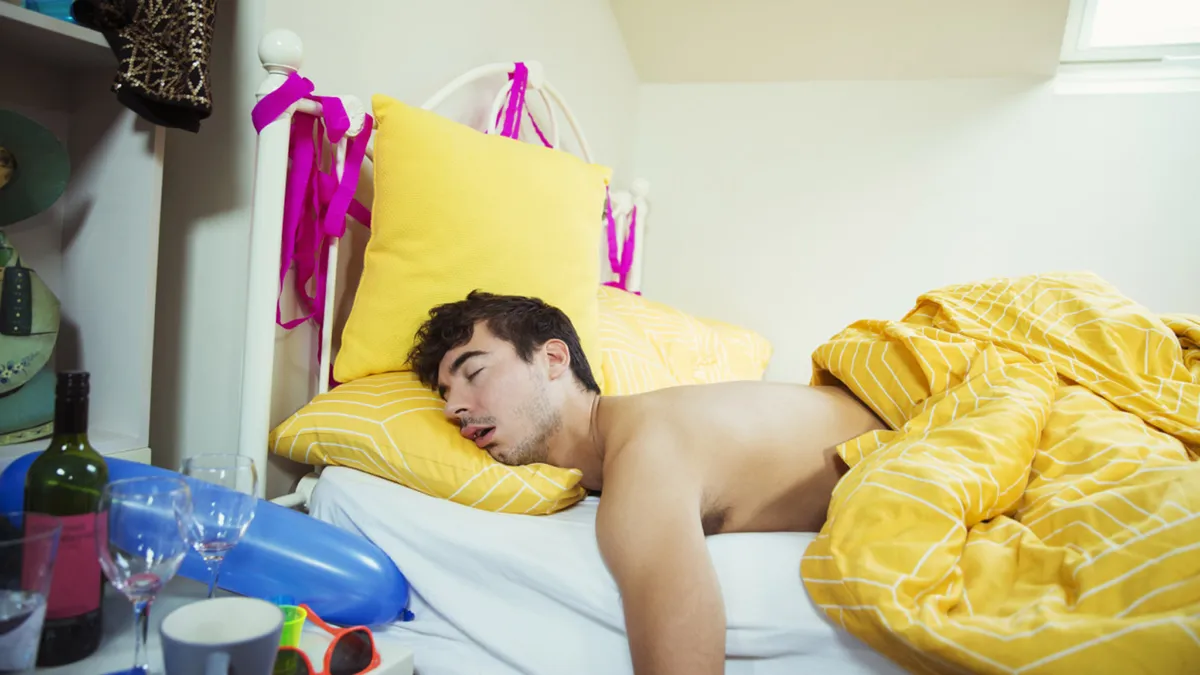
How to sleep better
If sleep eludes you long-term, here are the expert solutions to try:
Cover the basics
- A dark room, at a cool temperature, with a decent mattress, and not a lot of noise
- A bedtime routine that includes unwinding before sleep
- Switch off the TV and computer a couple of hours before bedtime
Evening training
- "Exercising hard three hours before bedtime can lead to a disturbed sleep, but a moderate session can help sleep,” says Scott Murray. “You know your own body, so consider the training level.”
Food and drink
- Wait three hours after food before sleep
- Research shows large, high-fat meals late in the evening affect sleep quality
- Avoid caffeine (from tea, coffee, cola and chocolate) from the afternoon onwards
- Foods rich in tryptophan, combined with healthy carbs, can help sleep, as your body uses it to create sleep-inducing serotonin and melatonin, and the carbs deliver it to the brain. Tryptophan-rich foods include pulses, turkey, eggs, sunflower seeds, miso, unsweetened soy milk and dairy products.
Power naps
"You don’t actually have to fall asleep to get benefits from a daily power nap," says Dr Meadows. Close your eyes, be still, take time out and it can help restore you. Even 10 minutes in the toilet at work can help, or on the train or tube journey home. Make it 15-20 minutes if you can, but no longer than 30 or you might feel fuzzy-headed.
Mindfulness
“Mindfulness, an ancient tradition of meditation, means focusing on the present moment fully, rather than worrying about what’s happened in the past or being anxious about what might happen in the future,” says Meadows, who treats chronic insomnia using Mindful Sleep Therapy.
“If you’re lying awake worrying about being awake, try focusing on your senses – the feel of the pillow against your cheek, the sound of your breathing. When annoying or stressful thoughts come into your head, tell them now is not the time, and come back to your senses,” he says.
Stress-busting chemicals
Japanese scientists have shown that a chemical in lemon and lavender essential oils – called linalool – alters blood chemistry to reduce stress. Put a couple of drops on a tissue, fold it into your pocket, and inhale when you feel stressed.
Time management
“Think of sleep in 90-minute cycles, not hours (so four cycles is six hours, five cycles is seven-and-a-half hours)," says Nick Hales, sport sleep and recovery coach. "The shorter four-cycle routine is commonly used to free up time and control sleep without losing quality.
"In 24 hours we have two natural sleep periods, nocturnal and mid-afternoon. So you can adopt a shorter period at night and combine that with an afternoon 20- or 40-minute nap or total downtime period.”